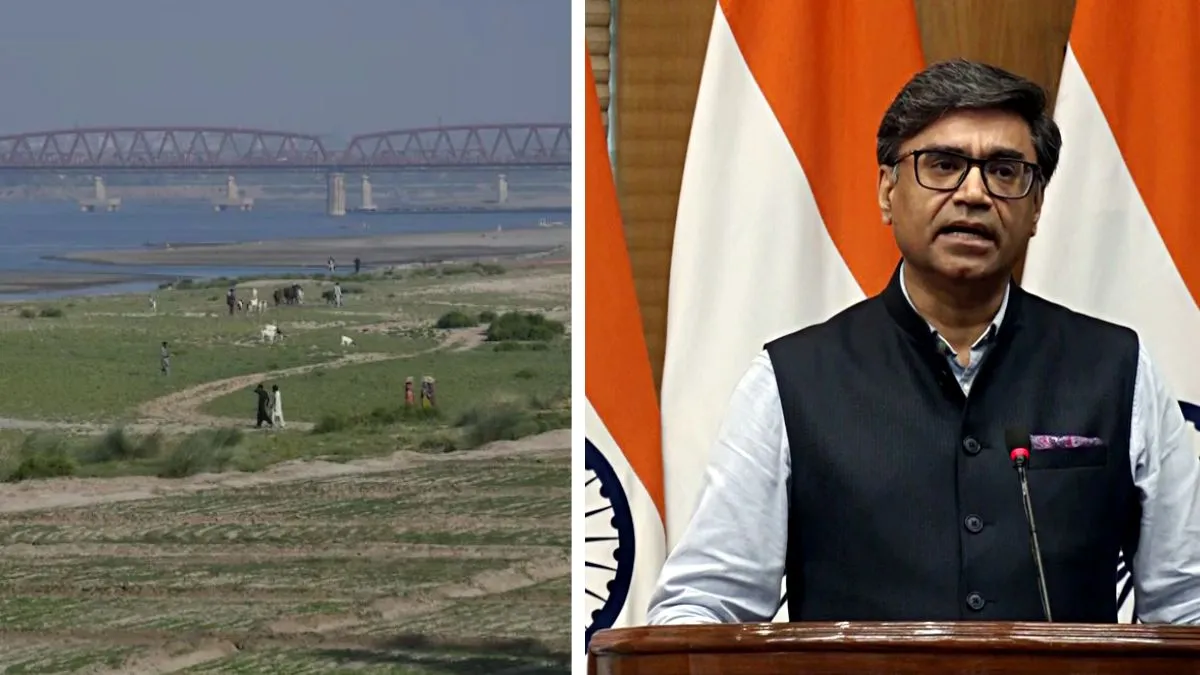- By Priyanka Koul
- Sat, 10 May 2025 07:08 PM (IST)
- Source:JND
India and Pakistan have agreed to a full and immediate ceasefire, strictly limited to stopping military actions. According to sources in the Ministry of External Affairs (MEA), the initiative for the ceasefire came from Pakistan, and the agreement was reached without any preconditions or post-conditions. There is no decision to hold talks on any other issue at any other place says IB Ministry.
.@MEAIndia announces that stoppage of firing & military action between India and Pakistan was worked out directly between the two countries.
— Ministry of Information and Broadcasting (@MIB_India) May 10, 2025
The Pak DGMO initiated the call this afternoon after which discussions took place and understanding reached.
There is no decision to… pic.twitter.com/HrepAj12bR
“There is no pre or post-condition to the ceasefire agreement. The call was initiated from Pakistan,” MEA sources confirmed as quoted by ANI.
There is no pre or post-condition of the ceasefire. The call was initiated from Pakistan. The Indus Water Treaty to remain in abeyance: MEA sources pic.twitter.com/JxK1yPdTX7
— ANI (@ANI) May 10, 2025
Despite this de-escalation on the military front, India’s sanctions on Pakistan remain in force.
India’s Suspension of Indus Water Treaty
India announced its decision to suspend the Indus Waters Treaty just a day after the deadly terrorist attack in Pahalgam, in which 26 tourists lost their lives in an assault carried out by Pakistan-based militants.
Foreign Secretary Vikram Misri stated, “The Indus Waters Treaty of 1960 will be placed in abeyance with immediate effect, until Pakistan verifiably and irreversibly ceases its support for cross-border terrorism.”
India has opted to indefinitely suspend the decades-old Indus Waters Treaty with Pakistan. As a result, the flow of water from the Indus River and its major tributaries Jhelum and Chenab may be halted or redirected. These rivers serve as critical water sources for Pakistan, and any disruption could affect the lives of tens of millions of people across the country.
At 3:30 PM today, the Director General of Military Operations (DGMO) of Pakistan called his Indian counterpart. Both sides agreed to cease all military activities whether on land, in the air, or at sea starting from 5 PM today.
“Both countries have been instructed to implement this agreement,” said Foreign Secretary Vikram Misri during a media briefing.
The DGMOs are scheduled to speak again on Monday afternoon.
India launched 'Operation Sindoor' on May 7 as a countermeasure to the brutal terror attack in Pahalgam on April 22. In this operation, India targeted terrorist camps in Pakistan and Pakistan-occupied Jammu and Kashmir. Pakistan responded with a series of unprovoked escalations, which India successfully pushed back.
PM Modi: India’s Water Will No Longer Flow Outside
During a conclave hosted by a private media group on May 6, 2025, Prime Minister Narendra Modi asserted that water belonging to India had long been flowing into another country and that this practice would no longer continue. Without directly naming Pakistan, PM Modi referred to India’s decision to suspend the Indus Waters Treaty in the wake of the Pahalgam attack, emphasising that water which previously flowed out of India would now be retained for the nation’s benefit.
“There is a lot of discussion about water in the media. Earlier, India’s water was going outside. Now, India’s water will flow in India’s favour and will be utilised in India’s interests,” PM Modi said during a conclave hosted by a private media group.
What Is the Indus Waters Treaty?
The Indus Waters Treaty, signed on September 19, 1960, is a historic water-sharing agreement between India and Pakistan, brokered by the World Bank. It was signed in Karachi by then Indian Prime Minister Jawaharlal Nehru and Pakistani President Field Marshal Ayub Khan.
Under the treaty:
- Pakistan was granted exclusive rights over the western rivers—Indus, Jhelum, and Chenab.
- India retained control over the eastern rivers—Ravi, Beas, and Sutlej.
Despite numerous armed conflicts between the two countries, including wars in 1965, 1971, and 1999, the treaty has endured, widely regarded as a rare and successful example of bilateral cooperation.
ALSO READ: India Announces Ceasefire With Pakistan, All Military Confrontations At Border To Stop Immediately
Why the Treaty Still Matters ?
- Pillar of Regional Stability: The treaty has served as a stabilising factor in India-Pakistan relations for over six decades, even during times of intense hostility.
- Global Credibility: India's continued honouring of the treaty has enhanced its image as a responsible state that upholds international commitments.
- Strategic Leverage: The suspension of the treaty marks a major policy shift, signalling that India may now use its water resources as a tool of strategic pressure in the face of cross-border terrorism.
ALSO READ: 'Could Have Saved Lives If Announced Earlier': J-K CM Omar Abdullah On India-Pakistan Ceasefire
With Inputs from ANI

